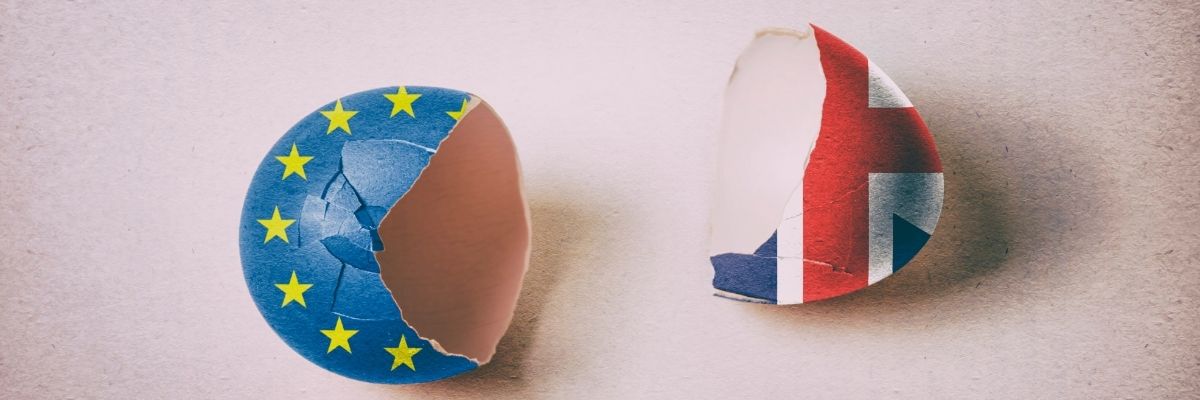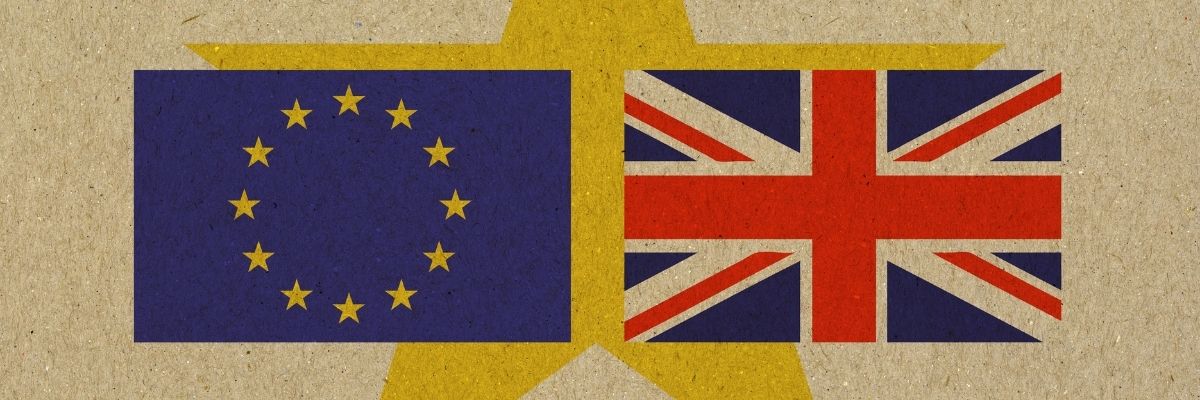
The UK will be leaving the EU at 11.59pm on the 31st December 2020. There are a lot of important details that still need to be ironed out and there may not be a deal reached until the final hour. We will discuss the effect of leaving the EU on the CBD industry in the UK and how the face of the CBD business may change forever as a result.
What will happen after we leave The EU on December 31st?
The deadline for the end of the transition period for the UK leaving after Brexit is December 31st. But what does this mean exactly and what if we leave with No Deal?
According to the BBC, one of the certainties that will come with a ‘No Deal’ Brexit is that the United Kingdom will drop out of all the EU’s main trading agreements. Another surety is that UK goods would become more expensive to sell and export to the EU owing to the tariffs they would then be forced to pay at borders. There would also be substantial wait times due to border checks.
In brief:
- The UK would operate under WTO rules, meaning tariffs on all raw materials from the EU to the UK. This means processed hemp and CBD imported from the EU growers and processors could increase in price because of the tariffs.
- Possible delays through customs due to the extra checks and paperwork needed could mean manufacturers will need to store extra raw materials or face possible delays in production. Unfortunately, this again could again mean extra costs for UK CBD companies.
Leaving without a deal and trading under WTO rules could lead to difficulties for British manufacturers, imports, and exports on all goods not just CBD. To add further disruption, certain CBD products can often raise suspicions due to their appearance and similarity to regular cannabis, this includes processed EU hemp used in tea production by some suppliers in the UK.
CBD manufacturers based in the UK will now also have a more difficult time selling their produce in mainland Europe. There will be border controls which will cost time and money. CBD white-label companies supplying brands in mainland Europe and Ireland will likely lose the contract as they move to a local supplier with no border delays, no custom fees and potentially VAT payments could become an issue.
Unfortunately, even if a deal is reached at the final stage, as the BBC points out, it doesn’t eliminate the possibility of border checks. Businesses will need to be extra vigilant for updates from the government as to the new requirements that they need to be able to trade in the EU. In regards to export, in the majority of cases an agent will be required in order to arrange the delivery due to the increased paperwork. Whilst, at first this could cause a lot of extra pain for UK companies trying to export, it will however create thousands of news jobs within the industry, which is very positive in the long run.

So, what is a novel food?
CBD legislation is in its infancy, but a key project has been the Novel Foods act which the EU had started.
The Novel Foods Regulation was set up in 2018 to improve conditions and simplify processes for food businesses to import new and innovative food into the European market. The official classification of a ‘novel food’ under EU guidelines is ‘a food that has not been consumed to a significant degree in the European Union prior to 15th May 1997’.
Before a novel food can be legally marketed in the UK, it is required to have a pre-market safety assessment and authorisation. A full list of Novel foods can be found HERE
Is CBD oil legal in the UK?
Yes it is! Other novel foods you may have heard of include chia seeds, as well as extracts from foods like Antarctic Krill oil. However, it was announced on 13th February 2020 that all CBD products marketed in the UK will require a validated submission or approved novel food application, the deadline for this application is 31st March 2021. If brands have not succeeded in obtaining an approved certification or have not submitted their application by this date, their products will be deemed illegal and removed from UK shelves.
What will happen to CBD businesses in the UK after Brexit?
Without any clear deal or no deal, it’s entirely speculative what could happen for CBD going forward.
Both Ireland and the United Kingdom have a substantial and growing market for CBD products. A vast range of CBD products are now available to purchase online and via well-known shops such as Holland and Barrett, Boots and Planet Organic.
Much of the CBD found in the UK is currently sourced from the EU. It is delivered with no delays and, without borders and tariffs, the price has dropped significantly over the last 24 months.
Moreover, even if the UK were to get a trade deal with the US and if CBD businesses switched to American suppliers, this would still mean that there is the potential for less free flowing trade than we have been used to currently. Orders could not only have a longer lead time than to our neighbouring European partners but could be more perceptible to delays throughout the notoriously difficult customs processes of the USA.
In brief:
- Increased tariffs mean increased pricing on CBD raw materials. Companies may be left with no option than to pass the cost onto the customer and this could add as much as 30% on to the price of the final products.
- Due to the implementation of the novel food application, CBD edibles sold in the UK from March 2020 must have been on sale in the UK prior to February 2020. This means that companies sourcing EU based products will need to change suppliers.

Could Brexit bring about new cannabis legalisation?
The EU has strict regulations and non-negotiable laws surrounding the cannabis industry. However, many people have speculated that a no-deal Brexit could lead to full legalisation of cannabis in the UK. Leaving the EU could be a great opportunity to
At the moment, cannabis is a controlled substance under the Misuse of Drugs Act 1971. CBD exists somewhere in the periphery on the scale of controlled substances. The full legalisation of cannabis is, admittedly, something of a pie in the sky kind of dream. It would certainly bring a slew of investment opportunities to the United Kingdom and create numerous jobs.
In short, leaving the EU, deal or deal is going to make things incredibly difficult when it comes to bringing in CBD products. Prices are highly likely to increase as most CBD is imported and the additional prices will most likely be passed on to the consumer. However, with the possibility of Cannabis legist
Conclusion
It is not all doom and gloom. Trade deals with countries outside the EU could create new opportunities that have not been available to the UK before, for numerous industries, not just CBD. However, a deal is crucial to avoid WHO terms, which will see tariffs undoubtedly passed onto consumers and the price of CBD products rise.
Here’s to a positive 2021 where we see the CBD industry flourish and not be stumped by sanctions and laws that are outside of UK CBD companies’ control.
